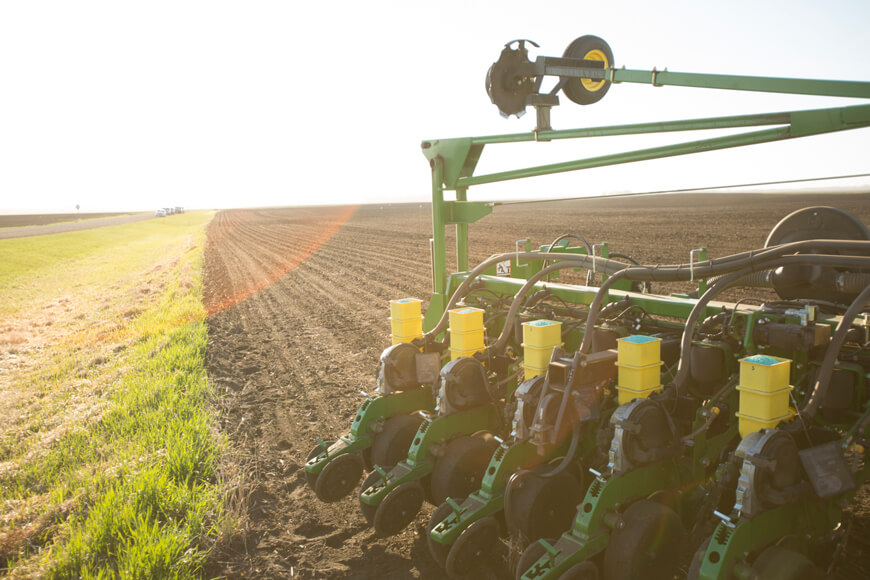5 Tips for Managing Early Season Plant Stress
Mar 04, 2021

Keep these five considerations in mind as you finalize your spring planting and management plans.
1. Reevaluate seed placement and management plans.
High-yielding seed varieties tend to require more intensive management to maximize their yield potential. When making seed choices, you can help mitigate risk by striking a balance between reliable, consistent performers and top-yielding genetics.
From there, work with your trusted advisor to review your seed’s response-to scores, which measure how a selected hybrid or variety will respond to variables like planting population, nitrogen use and fungicide applications. For example, some hybrids respond more favorably to being planted at higher populations while others don’t have as strong a response to population. Consider variable-rate planting so you don’t overpopulate or underpopulate, and ensure your planter is set to drop seed at the right depth to create optimal seed-to-soil contact and achieve even emergence.
2. Don’t push planting — wait until soil temperature is right.
It can be easy to get anxious when the first warm days of spring roll around. You may be tempted to plant early when the soil is close but not quite ready. However, be aware that planting into poor soil conditions is more likely to create problems for the rest of the season.
Iowa State University reports that corn may take three weeks to emerge when soil temperatures average 50 to 55 degrees Fahrenheit at the time of planting, compared to 10- to 12-day emergence when soils average 60 degrees Fahrenheit. Plants that emerge quickly are less susceptible to early-season root and fungal diseases and insect damage, as well as more likely to have even stands across rows.
3. Consider applying a seed treatment.
Due to earlier planting dates, we continue to see an increase in disease pressure from Pythium, Rhizoctonia, Fusarium and Phytophthora, which can be detrimental to the plant’s health and yield potential. A quality seed treatment can help mitigate these early-season stresses.
A soybean seed treatment like Warden® CX can help guard against fungal diseases and insects as well as help foster emergence. Among corn seed treatments, Fortivent® Plus provides control of Pythium and insects and aids early-season plant growth and root development.
4. Give plants a jump start to the season.
Starter fertilizers applied at planting can help stimulate root development and increase nutrient availability to small plants. Zinc and phosphorus are commonly found in many starter fertilizers, both of which are vital to early plant growth and tend to be more limited when soils are wet and cool.
In addition to a starter fertilizer, adding chelated zinc and a plant growth regulator like Ascend® Pro can help give your hybrids what they need to speed up the germination process. This becomes especially important when planting into cool, wet soils.
5. Don’t forget to scout your fields.
Once plants have emerged, be sure to scout fields early and often. Taking population counts can help determine if there were germination issues that may require extra attention. Observe plant spacing and growth stage differences between plants to evaluate whether a replant may be necessary.
The first steps you take this spring will affect crop growth and development throughout the season. Talk with your local WinField United retailer about how to get both parts right.
Shawn Barnett
Agronomy Director, Winfield United
All photos are either the property of WinField United or used with permission.
Important: Before use always read and follow label instructions. Crop performance is dependent on several factors many of which are beyond the control of WinField United, including without limitation, soil type, pest pressures, agronomic practices and weather conditions. Growers are encouraged to consider data from multiple locations, over multiple years, and be mindful of how such agronomic conditions could impact results.
© 2021 WinField United. Ascend®, Fortivent®, Warden® and WinField® are trademarks of WinField United.
https://www.winfieldunited.com/news-and-insights/5-tips-for-managing-early-season-plant-stress